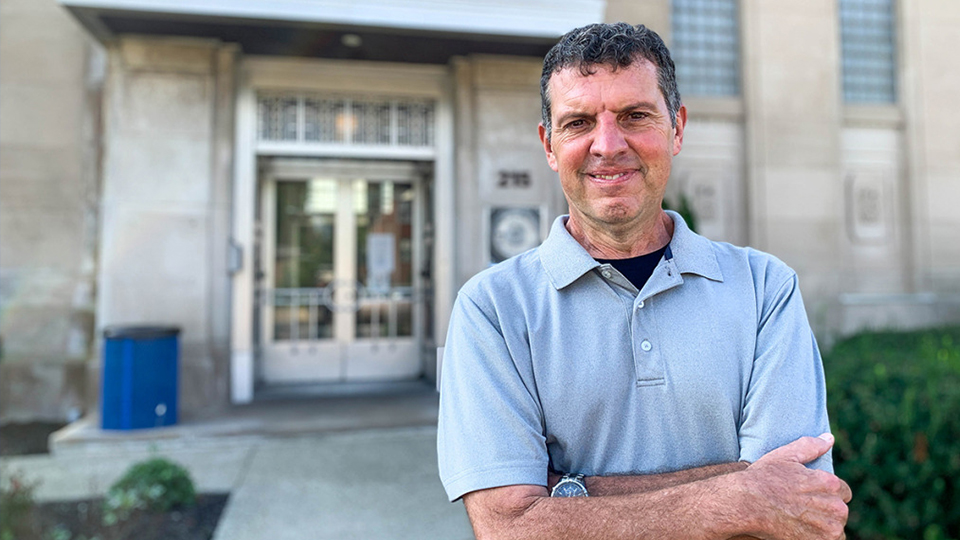Bill Oesterle, influential leader in politics and business, dies at 57
Subscriber Benefit
As a subscriber you can listen to articles at work, in the car, or while you work out. Subscribe Now
Bill Oesterle of Indianapolis, known for his wide influence in the spheres of entrepreneurship, politics and beyond, has died at age 57.
Oesterle died at home early Wednesday from complications of amytrophic lateral sclerosis, or ALS.
Oesterle’s list of accomplishments included co-founding and serving as CEO of Indianapolis Angie’s List, which he helped transform from a relatively small company into a publicly traded company before it was acquired by New York City-based IAC Inc. in 2017 for $750 million.
He also persuaded Mitch Daniels to run for governor and managed Daniels’ first gubernatorial campaign in 2004. He cofounded the Orr Fellowship, and most recently founded Indianapolis-based TMap, whose MakeMyMove platform helps communities nationwide attract new residents in the age of remote work.
Oesterle received the 2021 Michael A. Carroll award, an IBJ award named after the late Indianapolis deputy mayor and civic leader. The award honors individuals who demonstrate determination, humility and service.
“His loss is going to be deeply, deeply felt by a lot of people,” said Mark Lubbers, who worked as an aide to then-governor Robert Orr and hired Oesterle for a job in the administration in 1987.
Lubbers and Oesterle went on to work together at the Hudson Institute, a Washington, D.C.-based think tank, and on Daniel’s gubernatorial campaign.
ALS is a degenerative disease that affects nerve cells in the brain and spinal cord, causing the gradual loss of muscle control over time, eventually causing the loss of abilities including walking and speech.
But despite that, those who knew him said he never lost the optimistic and action-oriented outlook that defined his life.
“He is one of the most persistent people I’ve ever met. He does not give up on anything,” MakeMyMove CEO Mike Rutz told IBJ earlier this month. “I don’t think there’s a problem he doesn’t believe there’s a solution to.”
As recently as this month, Rutz said, Oesterle was still actively involved in MakeMyMove.
“I have daily meetings with Bill when he’s feeling OK,” Rutz said on May 2. “The guy’s relentless.”
Those who knew Oesterle also characterized him as someone who was wide open to new ideas and who challenged others to stretch beyond their comfort zones—while also having fun along the way.
“If Bill is doing something, you want to be part of it,” former Angie’s List employee Kelsey Taylor told IBJ last week. “When you work with Bill, you work with him, not for him. It’s always a collaboration of ideas.”
Taylor joined Angie’s List in 2007 when she took a job as wellness director. As part of that job she ran the company’s employee fitness center.
In 2018, after both Oesterle and Taylor had exited Angie’s list, Oesterle led a group of investors who paid $10.7 million to acquire the former Angie’s List campus just east of downtown, known as Elevator Hill. Those other investors included John Chuang, Peter Coolidge, Steve Kapner and Henry Hauser.
A $250 million office, housing, retail and entertainment district is now on the drawing board for the 18-acre Elevator Hill district.
IBJ Corp. owners Bob Schloss, Nate Feltman and Mickey Maurer—who was an Angie’s List board member—also have a stake, as does John Thompson, chairman and CEO of Thompson Distribution Co.
Oesterle approached Taylor with an idea: Would she open her own on-site fitness facility as an amenity for Elevator Hill’s tenants? Taylor hadn’t been thinking of owning her own business, but Oesterle’s query gave her the confidence to act. She opened her business, Taylor Made Wellness, in 2019.
“If you work with Bill, he makes you think bigger. He just gives you this confidence that you can do anything,” Taylor said.
Oesterle was at the front of a revolt against the state GOP over the Religious Freedom Restoration Act—known as RFRA—which the Republican-led Legislature passed in 2015.
The law, signed by then-Gov. Mike Pence, aimed to give judges guidelines for protecting religious liberties in civil cases, but critics—including Oesterle—said the law would essentially authorize discrimination against the LGBT community.
Eventually, the Legislature amended the law to say it couldn’t be used to permit discrimination, but Oesterle did not think that went far enough. He advocated for a full repeal.
Oesterle is survived by his wife, Kristi, six children and three grandchildren. A celebration of his life is being planned for a later date.
This story will be updated.
